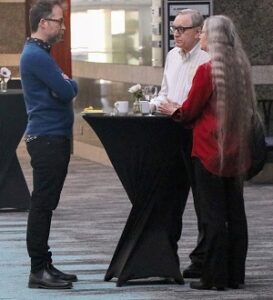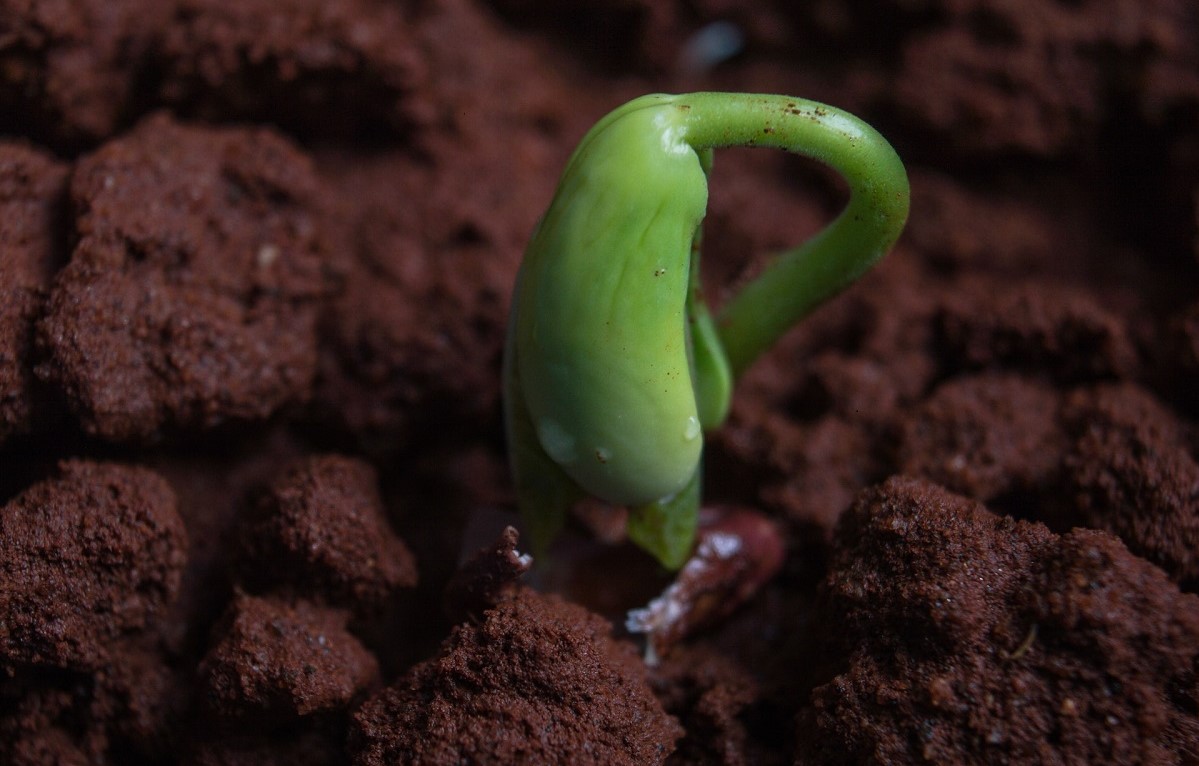I encourage aspiring writers to collect story seeds from their own experiences and then later let them sprout and grow. A chance encounter is the story seed that turned into this article about kindness and gratitude. If you are a writer, perhaps the example of a story seed will inspire you. If not, perhaps you will enjoy the message.
A Story Needs a Setting
This encounter occurred at a recent mini-conference organized to honor the memory of Frederick P. Brooks Jr, one of the pioneers in the field of computer science. He died in 2022, and this event was the first opportunity to gather former students and colleagues from as far away as Melbourne Australia (by zoom) and San Diego (in person). About 150 people met in an auditorium to listen as one panel after another told stories about the various eras in the career of Dr. Brooks. The stories featured his brilliance, his humor, his phenomenal ability to speak and write. I never attended any of his lectures without being spellbound. Many people told stories about his care for the well-being of staff and students. People remembered him warmly.

The encounter that became my story seed took place at one of those stand-up tables where people drop by, eat, drink, talk, and move on a different table.
Dr. Brooks isn’t directly involved in my story, but I am taking this chance to honor him anyway.
A Story Needs Something to Happen
I was standing with several other people drinking coffee and chatting about the panel that just ended when a tall grey-bearded man joined the table.
“Aren’t you Kathryn?” he asked me across the table.
“Yes,” I replied as I leaned over to try to read his name tag.
“I thought you might be here. I was hoping to have the chance to thank you. You were kind to me several times back when I was an undergraduate at Carolina. I think you were a graduate student at the time.”
“Why thank you for speaking up. What did I do?”
“I don’t remember. I just remember that what you made a difference. It was a time when I didn’t feel very confident. Your kindness helped me feel that I belonged.”
What Did It Mean (to Me)
I was struck that something I had done many decades ago had made enough of a difference to stick in his mind a very long time. I vaguely remembered his face, but I didn’t remember any specific interactions. I’ve tried to recreate what it could have been. Perhaps I showed him how to use a keypunch, submit a job, or debug a program. It was probably low cost to me taking just a few minutes. The main thing was that I perceived a need and did something.
I had to laugh at myself as well. I use this particular quotation in Write Experiment 24 in my book to warn people to be careful about who to quote.
I’ve learned that people will forget what you said, people will forget what you did, but they will never forget how you made them feel.
These words are often attributed to Maya Angelou, but I can’t find any evidence that she ever said or wrote them. (One source attributed them to Carl W. Buehner.) Whether she said them or not, I just got a powerful lesson that the message is true.
Here are two morals I can take from this experience:
- Be alert to opportunities when a small act on your part may make a big difference to someone else.
- Be aware that you will probably never know the outcome of all your kind acts, and you don’t need to know. They made a difference anyway.
What Did It Mean to Him (I think)
A small story followed about losing someone close to him, which made him aware that time runs out in every relationship. That year, his resolution was to express his appreciation whenever he had a chance. He came to the meeting at least in small part because he thought I might be there. Yes, Dr. Brooks deserved his gratitude too, but Dr. Brooks wasn’t there to hear it. He knew that if I were there, I could hear it.
Expressing gratitude is a royal road to well-being.
Gratitude starts with being aware of the things people do that affect your well-being. It involves being humble enough not to assume you were entitled to them. I gather it wasn’t my job at the time to smooth his way. I presume I just did it anyway because I saw the need, had the time, and perhaps even enjoyed being helpful.
Expression enhances gratitude, causing an emotional reverberation. When he told me about his feelings about what I did, he relived the feelings. When he observed me responding, he amplified his initial memory with a new memory of being appreciated for sharing his appreciation. That shared micro-moment of positivity was truly a moment of love.
Here are morals for all of us:
- Speak up when you have the chance.
- Expressing gratitude can make you at least as happy as the person who hears it.
Last Word about Story Seeds
Writers, see how a chance encounter can become a story seed that sprouts and grows. You can relive the story as you tell it. Perhaps like me, you can show people that chance encounters can make a difference.

